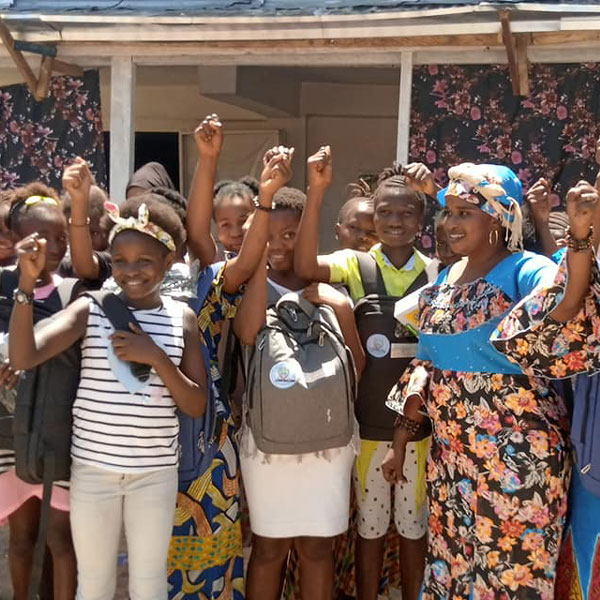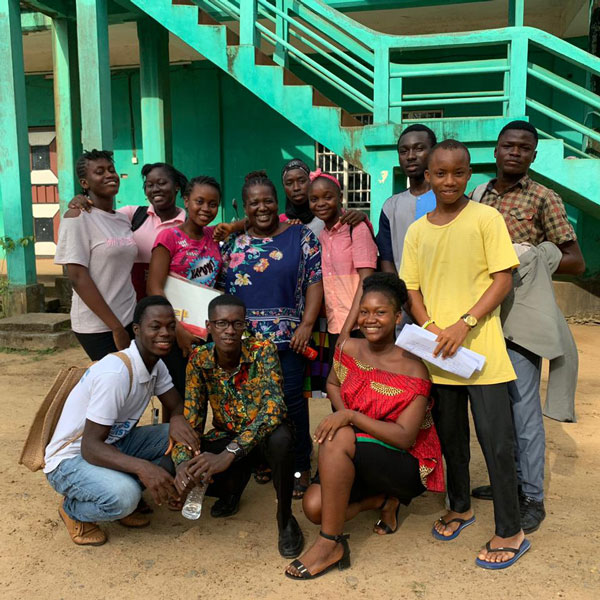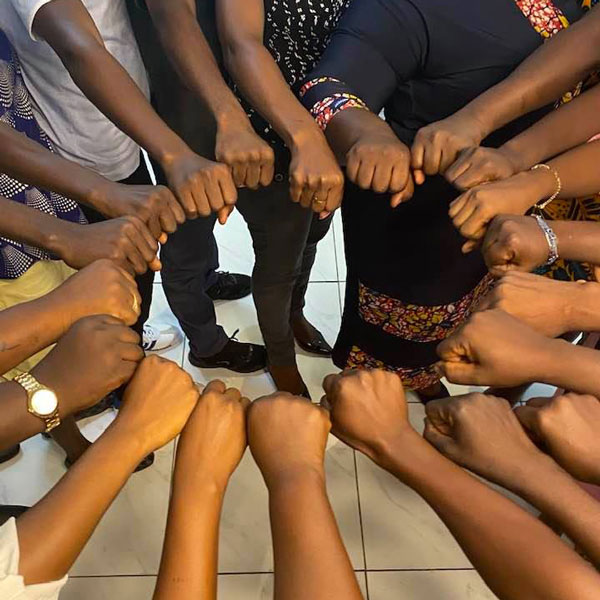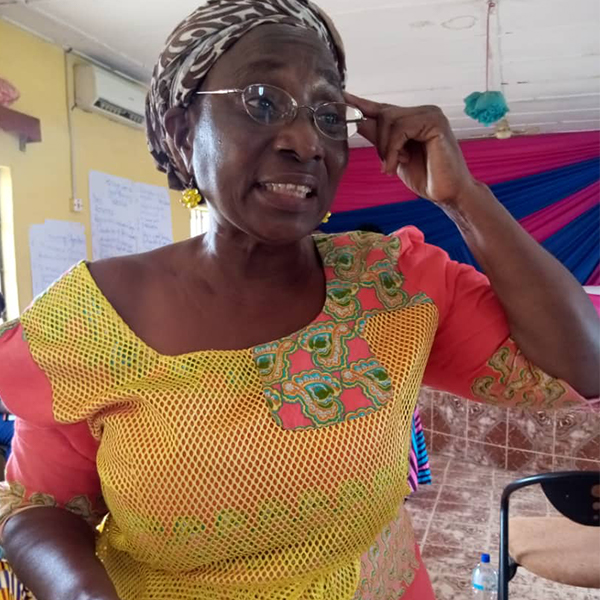Naomi Tulay-Solanke talked to GFC about why she founded the Community Healthcare Initiative (CHI), how the organization is raising awareness about menstrual hygiene, and how her plans to eventually leave CHI will help it fulfill its mission.
It wasn’t Naomi Tulay-Solanke’s plan to be a teen mother, but like many young women in her community, she became one. The experience inspired her to establish Community Healthcare Initiative (CHI) to help teens take control of their present and Liberia’s future.
As a young adult in Liberia, Naomi became a registered nurse and began seeing pregnant teens with new eyes – those of a clinician. It wasn’t long before she started formulating a prevention plan to help her community overcome the lack of information, shame, and stigma surrounding menstruation and sexuality that have led to many unplanned pregnancies.
In 2013, she began counseling teen mothers and organized clinicians to provide rural communities with a mobile clinic. The Ebola outbreak, however, stalled the project. Witnessing the effects of fear, misinformation, and isolation, Naomi knew the community needed reliable medical information.
She realized, “Someone needs to get out there and create awareness.”
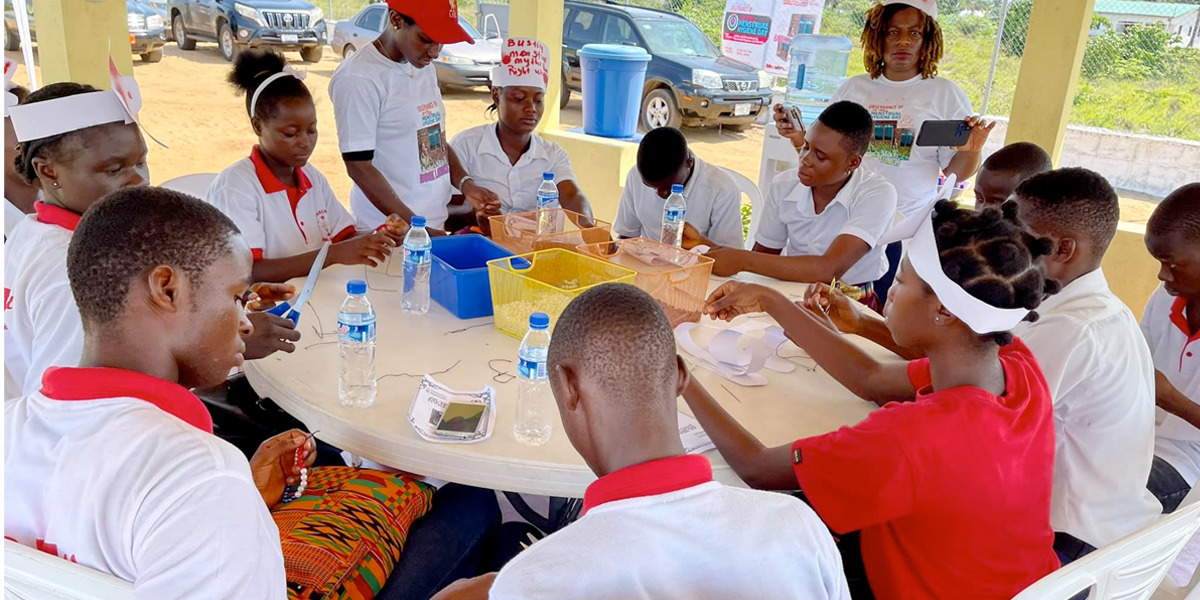
She mobilized young people, teaching them preventative measures to stop the spread of Ebola. They, in turn, taught the community. “This is how CHI started,” Naomi said, and this initial outreach program informs how the organization functions every day.
CHI now provides health care and social services in seven of Liberia’s 15 counties with the primary goal of ensuring all young people can live healthy lives, learn, and lead.
The organization includes youth at every level. This ensures CHI addresses the problems young people face while providing them with opportunities to lead.
“We don’t lead the change in the community – the youth lead the change in the community,” said Naomi, who serves as the organization’s Executive Director. “They identify the issues that affect them. We only facilitate the young people.”
CHI’s most recent project centered around Menstrual Hygiene Management Day 2021. Naomi says menstrual hygiene is about more than sanitary napkins. It is about youth sexuality, personal agency, and cultural taboos. Menstrual hygiene products are often too expensive or inaccessible. This forces girls to stay home from school and, all too often, into the early marriages and teen pregnancies Naomi witnessed as a nurse. She is determined to change that.
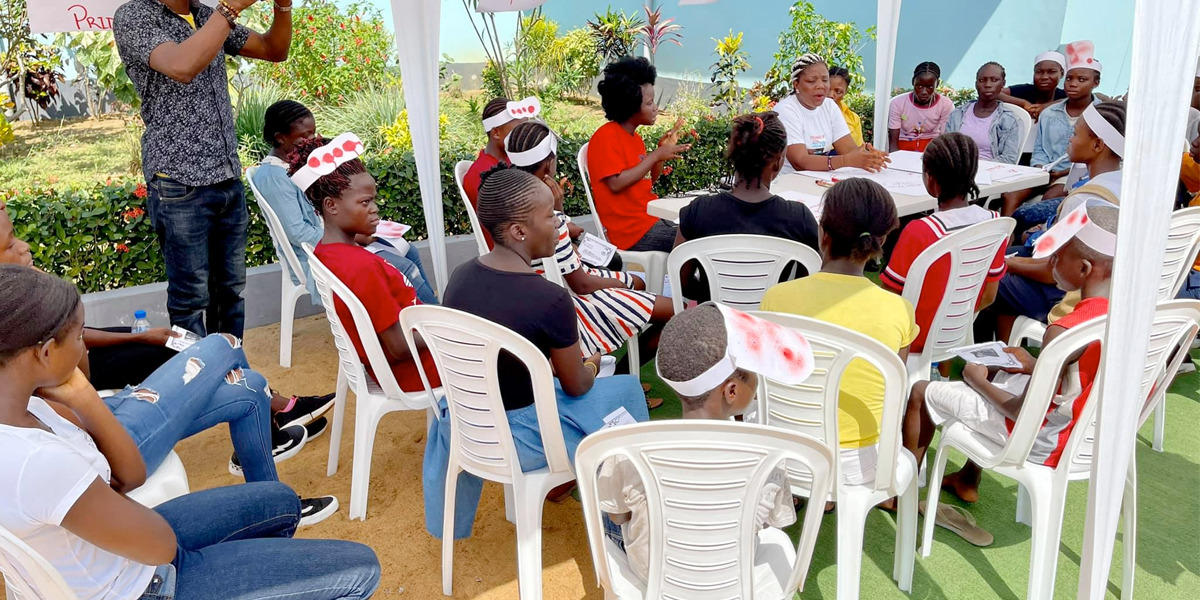
“We’re going to have everybody talking about menstruation!” she said.
Kolu’s Moon, a book that teaches children and young people ages 9 through 25 about the menstrual cycle, is the menstrual hygiene project’s centerpiece. Working with the Ministry of Education, CHI ensured that each school library in Liberia has a copy, and the organization has also provided copies to rural areas without schools.
The book launch event in May 2021 included multiple readings, each designed for a particular age group in the book’s target audience. While the readings focused on youth, the adult audience responded enthusiastically as well.
“When we launched the book, even people who were educated found it interesting to learn about their cycle because they hadn’t understood their cycle,” Naomi said. “When we said it was for the young people, the older people in the room said, ‘No, no! We are learning too!’”
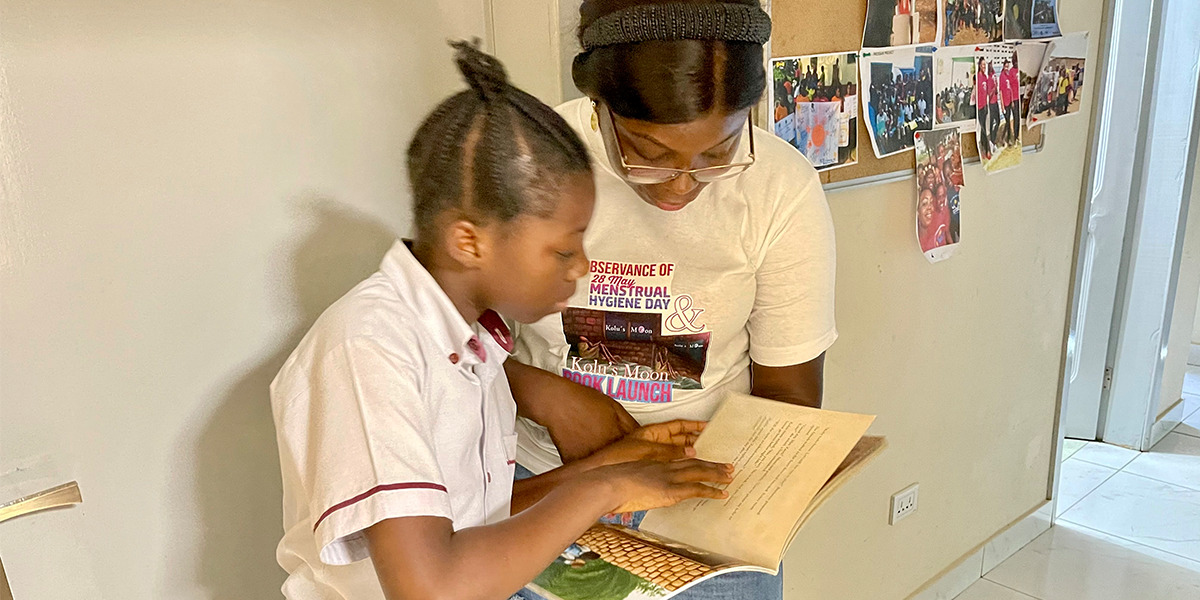
CHI has also launched a campaign to encourage women and girls to wear a red outfit every Wednesday to challenge the taboo and prompt discussions about periods.
Information like that presented in Kolu’s Moon can drastically decrease teenage pregnancy rates, but Naomi said it has been hard to find funding for these kinds of projects – until recently.
In February 2020, CHI joined GFC’s Ending Violence, Empowering Girls initiative funded by Tides Foundation and People’s Postcode Lottery which has helped CHI build a network of like-minded local organizations and learn from distant organizations doing similar work, in addition to providing CHI with some flexible funding.
“The good thing about GFC is they don’t fund specific projects, they fund your activity, so they have allowed us to direct some of the funding to our menstrual hygiene component,” Naomi said.
The experience of a CHI program participant named Akeelah* shows that programs like CHI’s work. After learning that 16-year-old Akeelah had left school in eighth grade because she could not afford sanitary napkins, CHI visited the student’s home.
Akeelah was contemplating marriage, but with her grandmother’s permission and approval, CHI helped Akeelah return to school, found her a mentor, and taught her to sew her own reusable sanitary napkins. Now, Akeelah is a mentor to other girls and teaches young women to sew reusable pads both for themselves and as a source of extra income.
CHI’s next project will focus on the other aspect of Naomi’s original vision: empowering youth to lead. The five-year project “She Leads” will center on developing adolescents’ leadership abilities to encourage them to participate in policy development and civil society, and address social and cultural barriers.
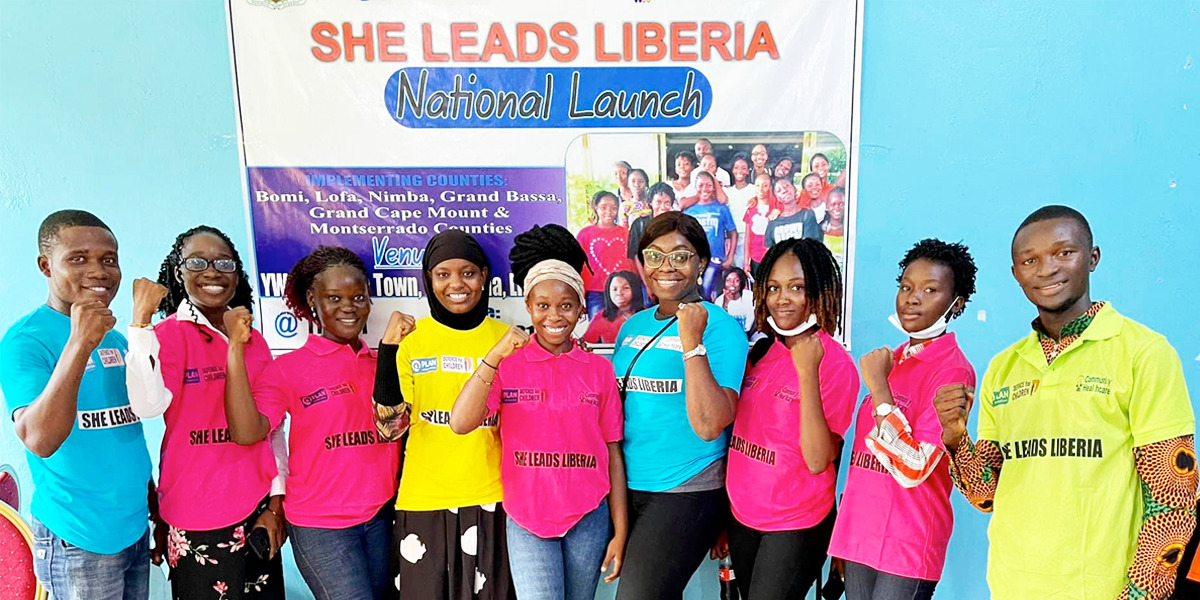
This project mirrors Naomi’s own aspirations for CHI’s future. She hopes to see CHI become one of Liberia’s leading champions of change for young people. In keeping with that vision, Naomi plans to step down within the next eight years.
This will “allow another young person to step in, so Community Healthcare can continue to carry its young vision and create change in the community,” she said.
*Name has been changed.
Header photo: Young people pose for a picture after attending CHI’s Menstrual Hygiene Management Day 2021 event. © Community Healthcare Initiative
Feature image: Children pose with Naomi with their new copies of Kolu’s Moon. © Community Healthcare Initiative
